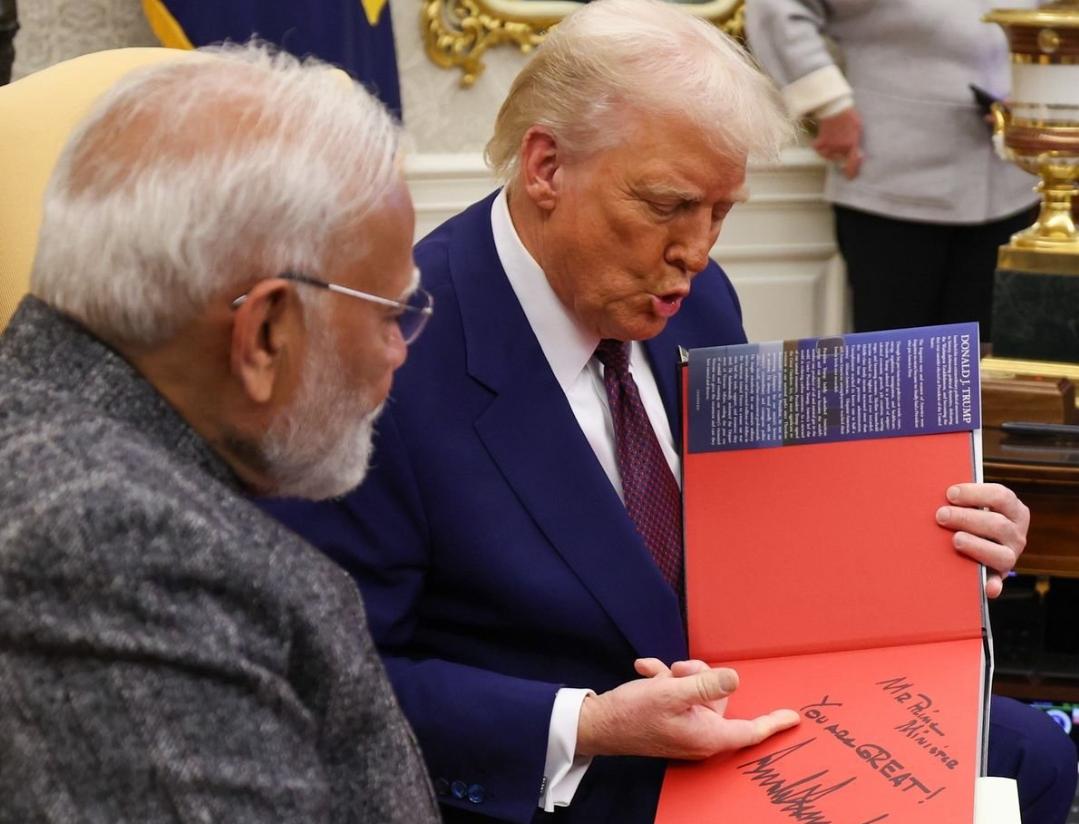
U.S. President Donald Trump has reportedly canceled his planned visit to India for the Quadrilateral Security Dialogue (Quad) Summit scheduled later this year, according to a report first highlighted by The New York Times. The move has sparked concerns about the future of U.S.-India ties and raised questions about the Quad’s stability at a time when the Indo-Pacific region faces rising geopolitical challenges.
Background on the Quad Summit and Trump’s Planned Visit
The Quad, or Quadrilateral Security Dialogue, is a strategic grouping of the United States, India, Japan, and Australia, created to promote a free and open Indo-Pacific. India was set to host the 2025 summit after hosting duties were swapped with the U.S., which organized the 2024 edition in Delaware.
During Prime Minister Narendra Modi’s state visit to Washington in February 2025, both leaders had reaffirmed their commitment to strengthening bilateral relations in defense, technology, and energy. Trump had agreed to attend the New Delhi summit, expected around November, which was also seen as a potential venue to finalize a long-discussed U.S.-India trade agreement.
Why Trump Canceled His Visit
According to the NYT, Trump “no longer has plans” to attend the summit. Several factors have contributed to this shift:
1. Trade tensions and tariffs: Trump’s frustration over India’s trade practices appears to be the primary reason. In August 2025, he imposed two successive rounds of 25% tariffs on Indian goods, pressuring New Delhi to reduce its imports of Russian oil. Talks for a comprehensive trade deal collapsed in July when Trump rejected a draft agreement that Indian negotiators thought was finalized. Bilateral negotiations scheduled for late August were subsequently frozen.
2. Strained personal ties with Modi: A NYT piece titled “The Nobel Prize and a Testy Phone Call” revealed friction between the two leaders. Trump reportedly expected Modi to endorse him for a Nobel Peace Prize after claiming credit for ending a four-day India-Pakistan conflict in May 2025, dubbed Operation Sindoor. Modi’s refusal to validate those claims soured the relationship further.
3. Shifting U.S. priorities: Analysts note that the Trump administration’s focus has shifted to other regions, particularly the Middle East, the Ukraine war, and delicate negotiations with China and Russia. Veteran journalist Seema Sirohi observed that the Quad no longer appears to be a priority for Trump, who may instead be eyeing a visit to Beijing.
4. India’s relations with Russia and China: Trump’s dissatisfaction is also linked to India’s continued engagement with Moscow and its renewed outreach to Beijing. Modi’s presence at the Shanghai Cooperation Organisation (SCO) Summit in Tianjin on August 30, 2025, alongside Chinese President Xi Jinping and Russian President Vladimir Putin, reinforced this perception. India’s efforts to ease visa restrictions and revive trade with China are being closely watched in Washington.
Implications of the Cancellation
The fallout has serious consequences for both bilateral ties and regional strategy:
Impact on U.S.-India relations: Experts describe this as one of the deepest ruptures in decades. The Atlantic Council has warned that Trump’s approach could drive India closer to Russia, China, and the BRICS bloc, undermining U.S. influence in Asia.
Uncertain future of the Quad: Without Trump’s participation, the 2025 Quad Summit risks being downgraded or even canceled. Analysts like Brahma Chellaney caution that the Quad’s weakening could embolden China to push harder in the Indo-Pacific.
India’s strategic realignment: New Delhi appears to be pursuing a “multialignment” strategy, engaging simultaneously with Washington, Moscow, and Beijing. While India has tried to placate the U.S. by reducing tariffs on American goods and exploring more U.S. energy and defense imports, these gestures may not be enough to repair the current diplomatic rift.
Geopolitical ramifications: The cancellation raises doubts about Washington’s long-term commitment to its Indo-Pacific pivot. Trump’s transactional approach, prioritizing trade concessions over strategic goals, risks alienating not only India but also other Quad members like Japan and Australia.
Contextual Developments
While Modi attended the SCO Summit in Tianjin on August 30, 2025, he also used the occasion to meet Xi Jinping and Putin, signaling India’s desire to balance its global partnerships. At the same time, New Delhi reaffirmed support for Ukraine’s sovereignty during a call between Modi and President Volodymyr Zelenskiy, underscoring India’s delicate diplomatic balancing act.
The broader context is important: earlier this year, Modi and Trump launched the Indian Ocean Strategic Venture to promote connectivity and commerce. They also supported projects like Meta’s undersea cable in the Indo-Pacific. These initiatives, once touted as cornerstones of closer ties, are now at risk.
Looking Ahead
Neither Washington nor New Delhi has officially confirmed Trump’s cancellation, leaving the door open to possible last-minute negotiations. Still, the episode highlights the fragility of U.S.-India relations under Trump’s “America First” lens, where trade disputes and personal expectations can derail strategic cooperation.
For India, the lesson may be clear: maintain diverse partnerships through multialignment, even if it means managing strained ties with Washington. For the U.S., the risk is equally stark—without India as a reliable partner, its strategy to counter China in the Indo-Pacific could falter.




